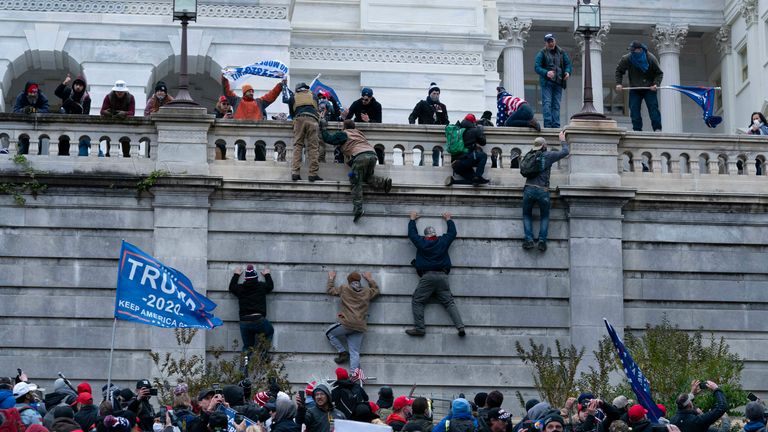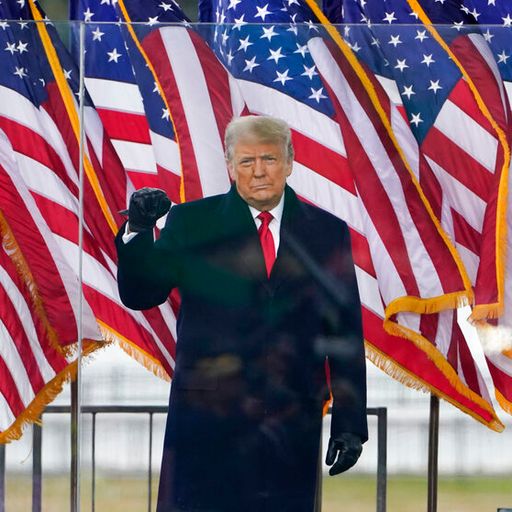Will the storming of the US Capitol be the moment the United States – and all other liberal democracies – finally take the danger posed by disinformation seriously?
To anyone who has watched the increasingly frenzied actions and chants of Donald Trump's core base, the sight of crowds of Americans rampaging on the most treasured symbol of US democracy, waving Trump flags and venting violence, would not have come as a surprise.
His followers have been gripped with a cult-like belief that the election on 3 November was rigged, their votes were stolen and Joe Biden is an illegitimate president-in-waiting.
It does not matter how many election officials, including Republicans, and judges come out and say claims of widespread fraud and meddling are bogus.
Trump supporters say that they know better. And many genuinely believe that they do.
This is to a great extent a belief built on a massive, swirling morass of distorted information circulating online - videos, posts, photographs - all purporting to be evidence the election was stolen even though in reality they prove no such thing.
Such posts are then shared on WhatsApp groups, Facebook sites, Twitter and across any of the many other social media platforms out there.
Little echo chambers, where contrary views are not welcome and the conviction of foul play on election day is reinforced.
Reputable newspapers and broadcasters have a responsibility to ensure what they publish and broadcast is accurate.
This same kind of practice is not required for anyone using social media even though what they write or say can potentially be seen by just as many people across the planet.
Of course there are red lines, such as inciting acts of terrorism and other forms of violence. But enforcing rules of behaviour to stop this information space from being exploited by those who seek, knowingly or unknowingly, to amplify divisions in a society is incredibly difficult.
Facebook and Twitter became far more active adjudicators after the 2016 US presidential election when intelligence agencies accused Russia of running fake social media accounts across their platforms to try to influence voters.
It is now much harder for a hostile state to play such a trick.
But what do you do when the people posting the hostile, fake and divisive content are home-grown politicians and other domestic actors?
Facebook appeared to offer a response to that question on Thursday when it released a statement saying that President Trump would be locked out of his account indefinitely because "we believe the risks of allowing the president to continue to use our service during this period are simply too great".
But individual technology companies taking action is not the answer. The idea of private firms deciding what is and what is not acceptable content will not sit comfortably with many.
Also, if Facebook bans Donald Trump, he and his supporters will just move elsewhere to continue their conversation.
What is needed is for governments across the world to mobilise and draw up rules of engagement for the online world that everyone supports and that treads that delicate, critical line between freedom of speech and the need to protect democracy from weaponised lies.








